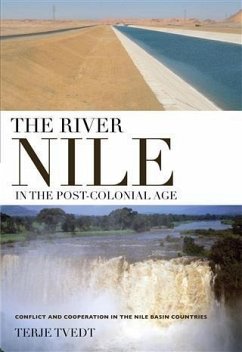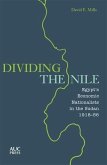Crossing three climatic zones - from tropical Africa to the Mediterranean - and home to more than 350 million people, the Nile basin is a vast and varied area. Five of its ten countries are amongst the poorest in the world and parts of the basin have become the very symbols of African misery, suffering drought, genocide, state failure and aid dependency. At the heart of this diverse and complex area is the Nile itself - one of the world's great rivers, and a past arena for international power politics. Yet whilst the importance of the river is well documented for the colonial period there is no comprehensive account of its management after independence. The River Nile in the Post-Colonial Age details the modern development of the countries of the Nile Basin and their efforts to manage its waters. The coming of independence opened up a new era - for the first time ten sovereign states shared the Nile basin. National policies emerged at different rates, reflecting varying levels of development, degrees of political stability and geographical position within the basin. Post-colonial developments were influenced by pride, sovereignty and state power on the one hand and by technological and economic feasibility on the other hand. The result has been a complex history of politics, policy-making, and conflict as countries have sought to grapple with the issues affecting the peoples of the basin and the challenges of optimal utilization of its finite water resources. How the waters of the Nile are managed in coming decades will have global implications - it could fan existing conflicts in Africa, and influence the balance of power in the Middle East. The River Nile in the Post-Colonial Age, with important new material by researchers from Egypt, Sudan, Ethiopia, Kenya, Tanzania, Democratic Republic of the Congo, Rwanda and Burundi, provides an indispensable aid to understanding the complex history of the basin, the politics surrounding it and the efforts that are being made to jointly manage it.
Dieser Download kann aus rechtlichen Gründen nur mit Rechnungsadresse in A, B, BG, CY, CZ, D, DK, EW, E, FIN, F, GR, HR, H, IRL, I, LT, L, LR, M, NL, PL, P, R, S, SLO, SK ausgeliefert werden.









